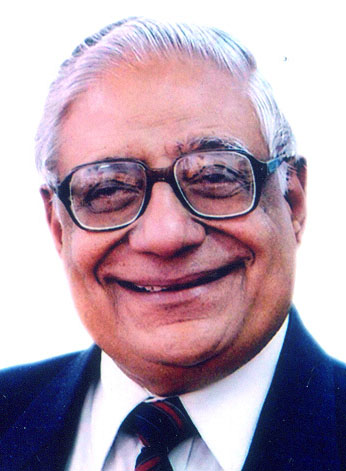 Published in Indian Express – December 14, 2016
Published in Indian Express – December 14, 2016
Post-demonetisation, Modi govt could try simultaneous Parliament and state polls. However, this will be vigorously challenged.
By H K Dua
Prime Minister Narendra Modi is by no way a casual person. Hence, it would be a mistake to take his recent statements, suggesting a debate on simultaneous elections to Parliament and state assemblies, casually. His proposal could be part of a larger design to extend his party’s — or his personal sway — over the entire country. He could be pursuing the thought that simultaneous Parliament and assembly polls would be to the BJP’s advantage, ensconced as it is at the centre and in most northern and western states without depending on another party. Also, opposition parties are in disarray and unlikely to join hands against the government.
Interestingly, Narendra Modi did some thinking aloud on simultaneous polls at an all-party meeting chaired by the speaker, and later at the BJP’s national executive some months ago. He then raked up the theme again just a few days before demonetisation. It is now known in the public domain that he recently went one step further and asked the Niti Aayog to work out details, if simultaneous Parliament and assembly elections were to be held in 2019 or earlier.
Modi is essentially in tune with the RSS’s thinking which has always spoken for one country, one language, one civil code, etc. The BJP’s earlier avatar, the Jana Sangh, also favoured simultaneous polls and a unitary system. However, of late, Modi has invested every ounce of his political capital and energy on demonetisation. Although some sections have welcomed his move for rendering a blow to black money, many people think he has gone for a big gamble without working out the details of how to run a cash economy with 86 per cent of Rs 1000 and Rs 500 notes withdrawn, and only 14 per cent cash left in the hands of the government, banks and people.
Many BJP MPs, chief ministers and MLAs are sulking and waiting anxiously for applause that is not forthcoming from the long queues of people waiting for a pittance of their own money. Many BJP MPs and MLAs are not sure about the impact of demonetisation on their own electoral prospects. The test will come in the forthcoming Uttar Pradesh elections likely to be held in just three months. The outcome of the UP polls will define politics through Narendra Modi’s two remaining years during his present term. The UP election may also decide whether he will be able to go in for simultaneous polls to Parliament and state assemblies.
From Modi’s speeches, it is clear he has chosen to go to the people almost daily to justify demonetisation, promising better days ahead if they go digital and run their lives with e-wallets via their mobiles. It is not yet clear whether his assurances will cut much ice with the people. But even if his party puts up an impressive performance in UP, his plans for simultaneous polls may not have smooth sailing. Indira Gandhi earlier, and the Janata government after the Emergency, dissolved state assemblies, declaring the assemblies had lost the people’s mandate taking into account the outcome of the Parliamentary election — a point that is always presumptive. It will be difficult for Modi to find an argument for dissolving existing assemblies in the name of simultaneous elections on the plea that these will save the nation considerable money.
While state chief ministers will look at Modi’s plan from their own point of view, the judiciary can prove to be a major impediment. The Supreme Court could stand in the way. It could hold cutting short a duly elected assembly’s life, which is still enjoying a majority, as ultra vires. The Supreme Court may invoke the “basic structure” theory it pronounced in1973 when Mrs Gandhi was fiddling with Constitutional values and institutions, holding that Parliament and the executive cannot amend the basic structure of the Constitution to suit their political convenience. It could pronounce that the federal principle and the articles defining the lakshman rekha between the central authority and the states’ rights are a part of the basic features of the Constitution; these cannot be done away with by the centre’s fiat suddenly dissolving assemblies.
Strong leaders heading single-party governments at the centre have the tendency to consolidate their hold in the country through convenient governments in the states. They tend to disregard the federal principle enshrined in the Constitution. But there is a fine balance between the powers of the centre and what falls in the states’ remit.
Mrs Gandhi used all means, often by encouraging defections, even encouraging factionalism within her own party units in the states, to change regional chief ministers. She liberally used Article 356 to impose central rule in states, often by contriving situations. Narendra Modi’s government has shown a similar predisposition. This is clear from recent moves his party and centrally appointed governors made in Uttarakhand and Arunachal Pradesh — but the courts didn’t look kindly at these centrally-sponsored toppling operations.
Simultaneous polls will clearly involve cutting short several assemblies to impose President’s rule. Exercising wilful central authority to displace elected state governments can hurt regional pride. The dissolution of state assemblies will be unwelcome in most states. Such moves may advance the Modi government’s designs for a unitary form of governance, but wouldn’t advance its democratic credentials, nor the concept of cooperative federalism his party has spoken about in its manifesto. Such moves can be dangerous for the country.
The writer, a former editor in chief of ‘The Indian Express’ and Rajya Sabha MP, is advisor, Observer Research Foundation, Delhi
